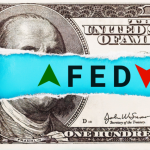
You can take a list of consumer stocks that can be the “next Procter & Gamble” in many different ways. Certain small- and mid-cap stocks may share some of PG’s attributes. They are products that foster brand loyalty, offer pricing power and perhaps even pay a dividend.
But these companies will have to deliver share price growth. Since 1984, that’s something that Procter & Gamble has done at a non-split adjusted average of over 130% in the last 40 years.
That kind of consistency is the definition of “when in doubt, zoom out.” Also, it shows a stock’s development of a reputation for letting investors sleep soundly, regardless of market fluctuations.
Therefore, it’s still a tough task to find consumer stocks. But, among small- and mid-cap stocks showing healthy growth, three names stand out.
WD40 (WDFC)

WD40 (NYSE:WDFC) is part of the consumer staples sector since its products are always in demand.
But, the historical price chart for WDFC stock is up 2,432.39% since 1984. That averages out to a non-split adjusted 60% per year. WD40 delivered a 2-for-1 stock split in August 1997. Also, the company has a dividend that currently yields 1.35% and has been increasing for the last 15 years.
In October 2023, I placed WD40 on a list of overvalued stocks. Nothing has changed from a valuation standpoint. In fact, the company has a higher valuation based on its price-to-earnings (P/E) ratio. As of market close on February 13, 2024, WDFC checks in with a P/E ratio of 50.8x.
However, the company’s average P/E over the last 10 years is around 37x. And many times in that span, the stock has traded at a P/E well above 40x.
That doesn’t mean it’s time to take a new position in WDFC stock. With short interest coming in around 13%, you may want to wait for a pullback. But if you currently own the stock, there’s ample reason to believe that WD40 will continue to be one of the consumer stocks you shouldn’t ignore.
Skechers (SKX)

Skechers U.S.A. (NYSE:SKX) falls in the discretionary category of consumer stocks. The company has been publicly trading since 1999, and it shows some nice price action. The stock is averaging approximately 63% stock price growth per year.
Notably, the company has made strides at upgrading its portfolio without losing its cache as a value brand to rivals such as Nike (NYSE:NKE). And, the company’s footwear appeals to both affluent, aging Baby Boomers as well as Gen Z. That means the company isn’t just a buy in a weak economy.
Additionally, Skechers checks the valuation box. At 17x forward earnings, the stock is currently trading below its historical average as well as the average of the broader consumer discretionary category.
However, Skechers has some work to do in the dividend area before earning a title of “next Procter and Gamble.” Although no evidence exists that a dividend is coming, the company did undertake a $500 million share buyback in 2022.
e.l.f. Beauty (ELF)

The last of the consumer stocks on my list of contenders for the next Procter & Gamble is e.l.f. Beauty (NYSE:ELF). The company fits into the consumer defensive category which I look at is either staples or discretionary depending on your point of view.
Investors buy stories, and e.l.f. Beauty has a strong one. The company is carving out a niche because its products are designed with vegan and cruelty-free ingredients. That resonates with its core demographic.
It’s working. The company’s revenue and earnings are up strongly year over year (YOY). At a time when many consumer stocks are having problems with growth, this is impressive. And, it shows up in the ELF stock price which is up 132% in the last year.
The stock has been trading publicly only since 2016, but it’s already rewarding shareholders with an average gain of approximately 70% per year. And six weeks into 2024, the stock is impressively up 18%.
Investors pay a significant premium for the stock at 69x forward earnings. Plus, the early-stage growth company doesn’t pay a dividend. Yet, with the company projecting 19.7% earnings growth in the next 12 months, this is one consumer stock to watch closely.
On the date of publication, Chris Markoch did not have (either directly or indirectly) any positions in the securities mentioned in this article. The opinions expressed in this article are those of the writer, subject to the InvestorPlace.com Publishing Guidelines.







